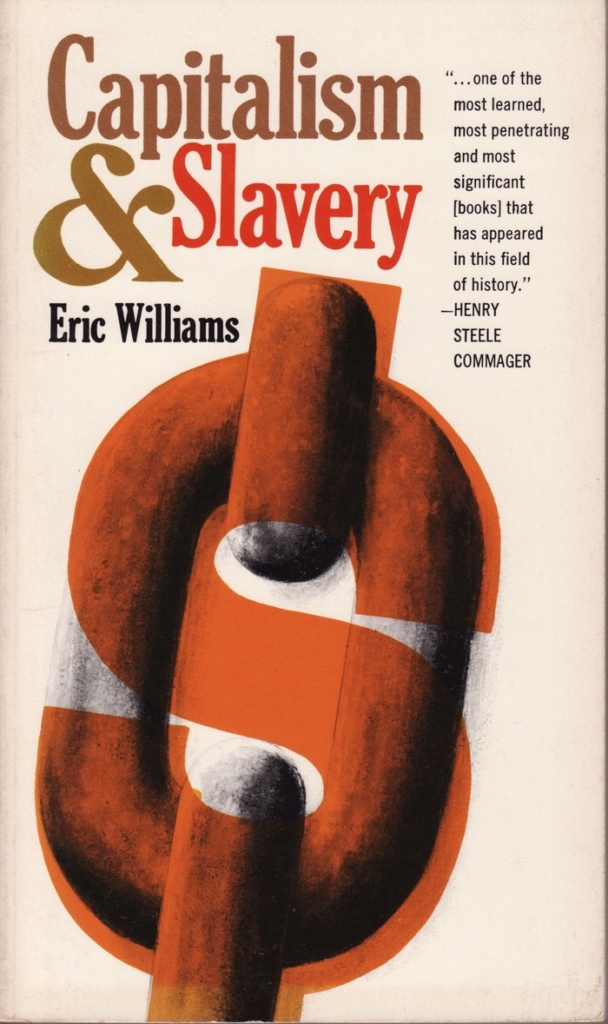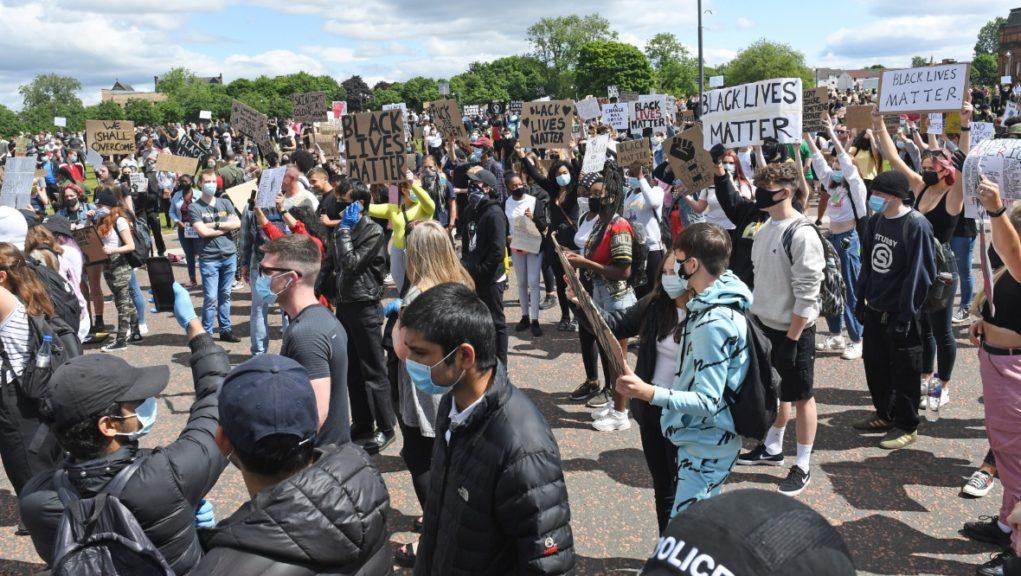Exploring Scotland’s colonial past: making a case for decolonisation


From academia to art museums, big and small, decolonisation is the buzz word on everyone’s lips. It’s a term that’s increasingly used as a magic bullet, a shortcut to transformative, radical work that will change the face of infrastructure and institutions as we know them. However, despite its increased use, the word hardly points at any concrete plan to make such a transformation happen in the UK. But before getting into the practice of decolonisation, we must ask: why is decolonising necessary in Scotland?
As part of the United Kingdom, Scotland was an imperial centre for trading colonial goods and financial speculation. Glasgow itself was known as the second city of the British Empire, becoming the host of the Empire Exhibition in 1938. Recently the University of Glasgow published a report on its own colonial roots – the first and so far only academic institution in the UK to have carried out such a systematic investigation into its own imperialist history.
The report, which came out in September 2018, is a hefty document titled “Slavery, Abolition and the University of Glasgow”, which looks at the transatlantic slave trade and the role it played in generating the university’s wealth. The effort represents an unprecedented commitment to clearly establish that the university, which has previously projected an abolitionist façade, actually reaped substantial financial benefits from slavery. The estimates range between £16m and £200m in today’s currency, although a lot of data remains missing and more research is needed to form a fuller picture.
Through the report, it becomes unequivocally clear that colonial participation and profit is embedded in the very structure of Scotland’s oldest institutions, both socially and culturally, due to the ways in which capital was created and invested.
In his 1944 book Capitalism and Slavery, historian and Prime Minister of Trinidad and Tobago Eric Williams draws out a picture of the origins of British capitalism that differs from the canonical and accepted narrative taught in British schools. Traditional curricula attribute Britain’s booming success during the so-called ‘industrial revolutions’ to the myth of what is known as ‘British exceptionalism’. However, Williams explains, the success of British industries was heavily dependent on transatlantic slavery and colonial plantations, as well as the mining and textiles industries. The establishment of capitalism and the formation of an oppressed working class are strictly interlinked with racial colonialism and cisheteronormative patriarchy, the main socio-economic propellers of industrial development.
New financial systems, meanwhile, such as the banking industry, were formed as a consequence of the ways in which wealth was being generated by British colonialism: a technology that could reproduce the capital and profits invested by plantation owners into their mother country, Great Britain. Andrew Buchanan, one of Glasgow’s “Tobacco Lords”, after whom the central Buchanan Street is named, was one of the original partners of the first city bank, which was created in 1750 with capital originated from colonial plantations.
And he wasn’t the only one. There is a vast and sobering overlap between renowned figures in Scottish history and those who profited the most from British overseas plantations. Edinburgh’s Henry Dundas established himself as the most powerful politician in Scotland at the end of the 1700s, acting as President of the Board of Control, with absolute power over colonialism in South Asia at the head of the East India Company. Within his parliamentary career, firstly as Home Secretary and later as Minister of War and Colonies, he was responsible for stopping the immediate abolition of racial slavery in 1792 in parliament and delaying it till at least 1807 (though it did not officially end in all the colonies until 1833). Professor Sir Geoff Palmer exposed this piece of history, uncovering “Edinburgh’s long and profitable relationship with slavery” which funded the construction of the New Town, during a landmark lecture for Black History Month in 2018, in the Canongate Kirk on the Royal Mile.


To this day, however, Dundas is commemorated as one of Edinburgh’s most revered patrons and philanthropists, his statue found on the top of a 150-feet-tall column at the centre of St Andrew Square in the New Town. The city of Edinburgh benefitted from his investments and donations, which came directly from the colonial trade, territorial occupation and racial slavery. It is only now that historians such as Diana Paton at the University of Edinburgh are setting the record straight about the legacy of Dundas, who “consistently promoted the interests of colonial slaveholders” and yet became known as a philanthropist and an abolitionist.
The University of Edinburgh, meanwhile, was a centre for racialised studies between the 1700s and the 1800s, during which scientifically unfounded theories of race were produced in order to justify and promote imperial rule and white domination. Robert Knox, for example, who trained generations of medical students at the height of the university’s popularity, wrote the bestselling The Races of Men, a shocking work of scientific racism that uses unfounded biological claims to illegitimately situate race in the human gene and classify human differences according to an intellectual and social hierarchy. Subsequent horrors such as eugenics (a tenet of fascism) find their genealogical tracing in institutions like the University of Edinburgh among others, but close to nothing has been done to address the legacy of this history.
As this evidence continues to come to light, it is becoming increasingly difficult to deny the ways in which Scotland reaped incalculable benefits through imperialism and colonialism. Is it any wonder, then, that people are calling for decolonising action, to get rid of the infrastructures and logics that allowed for those legacies of expropriation and exploitation that pervade the history and the present of this country and its output in the world? Nevertheless, it continues to remain unclear what this action might look like in practice. What does it mean to decolonise an imperial centre?
In a country where entire institutional structures, from the financial to the cultural, are built on a long and deep history of colonialism and racialisation, the road to decolonisation is a complex one. National museums display and celebrate colonial loot, universities sit on archives and collections whose violent, racist significance remains ignored, while financial, housing, production markets and carceral complexes keep reproducing the same parasitic structures.
A long and thorough examination of the history of the country is required, as well as a commitment to questioning and disempowering its colonial structures in an active and truthfully revealing way. The recent popularisation of the term ‘decolonising’ risks becoming detrimental to the cause when it is used to rebrand the moral reputation of an institution rather than to subvert the legacies of colonial power accumulated inside it. Decolonisation is not a check box on a bureaucratic form, a marketing claim on a website, or a resettling, appropriating, and redefining of current systemic paradigms which allow such systems to keep existing. Rather, it is an unsettling and dismantling of colonial institutional structures – an intervention on them – in order to confront their destructive legacies.
Contrary to what is commonly believed, Scotland constitutes no exception when it comes to the unaccounted violence and aggression of colonialism, its wealth generated at the hands of expropriative and genocidal colonial practices. The decolonial imperative opens an array of pressing questions that undermine the assumed exceptionalism of both Scotland and the United Kingdom. The history of colonial imperialism must be acknowledged and confronted, in order to counter the legacies of empire – the extraction, assimilation, exploitation and erasure – that extend to the very present.

This is a fine honest piece of work, and the work of its authors is critically needed by all who seek independence for Scotland in c21. Please remember, dear BC readers, that gaining trading access to England’s slave-driven colonies in the Caribbean and North America was precisely the ‘English gold’ which ‘bocht’ Scotland’s loss of independence in the 1707 Treaty of Union. By a vote in a far-from-democratic Scottish Parliament.
It is not the majority of Scots who were ‘bocht and sold for English gold’ (Burns, who else?) in 1707. Only those who sought to benefit directly from trading on the ‘benefits’ of slavery. A fact celebrated by the merchants who are commemorated in the title of Glasgow’s ‘Merchant City’.
The growth of the city of Glasgow into the ‘second city of the Empire’ was the direct consequence of slavery, which brought the sugar, tobacco and then cotton upon which much of Scotland’s c19 industrial wealth was later built. Eric Williams’ celebrated book built on and augmented Vladimir Lenin’s arguments about the creation of imperialism as the second stage of capitalism. Which is precisely why I read it as a young marxist in the 1960s.
“The establishment of capitalism and the formation of an oppressed working class are strictly interlinked with racial colonialism and cisheteronormative patriarchy, the main socio-economic propellers of industrial development.”
Its been a while since I read his book but I do not recall Williams saying that
@Axel P Kulit, well, linking British/European colonialism with ‘cisheteronormative’ anything seems a stretch. The commanders and officer class of these Empires were anything but, with their dynastic marriages and royal ability to indulge whatever they fancied, even if they punished lower orders for doing the same:
https://www.reuters.com/article/us-britain-lgbt-tourism-idUSKBN204263
It seems the ordinary early-modern commoners (save up and marry around 25) were often quite critical of the arranged (often child) marriages of the imperial aristocracy and its emulators.
Two of the early drivers of English colonialism were the ‘virgin queen’ Elizabeth I and possibly bisexual James VI and I. If patriarchy has no gender, why should it have an orientation? After all, male-homosexual-supremacist Plato provided much of the philosophical inspiration for Christian Church patriarchy. And if anything, it was the abolitionists who used the nuclear-family-oriented arguments to highlight the unnatural and unjust practices of racial slavery.
When the Irish President recently stood up to condemn silences on British imperial colonialism, they did not try to deny that Republicans also committed some of the atrocities. The questions of Cecil Rhodes’ or Lord Mountbatten’s colonial legacies are presumably orthogonal to whether or not they had homosexual relationships.
One thing Williams said that stuck with me was that 19th Century Employment Law was based on a master-slave relationship. This does not seem to have changed much. He also pointed out that slave owners opposed abolition not only on the basis of financial loss but also loss of power ( over the slaves).
I think we need to tackle the love of power which is to a great extent hidden by the current focus on economics, in about everything.
Yep, the commodification of labour in the economic institution of modern slavery as both a manifestation of the will to power and a material condition of colonisation is undoubtedly a theme worth exploring in the ongoing process of decolonisation.
The subject of a wee doctoral thesis for someone, maybe. Or perhaps one of the universities could, as a contribution to the decolonisation process, fund a research programme.
I agree with you on the need to interrogate ‘the love of power’and something that’s always intrigued me. Surely it would be an advantage along with the economic analysis to disrupt and dismantle this cruel system that is destroying what is worthy and decent.